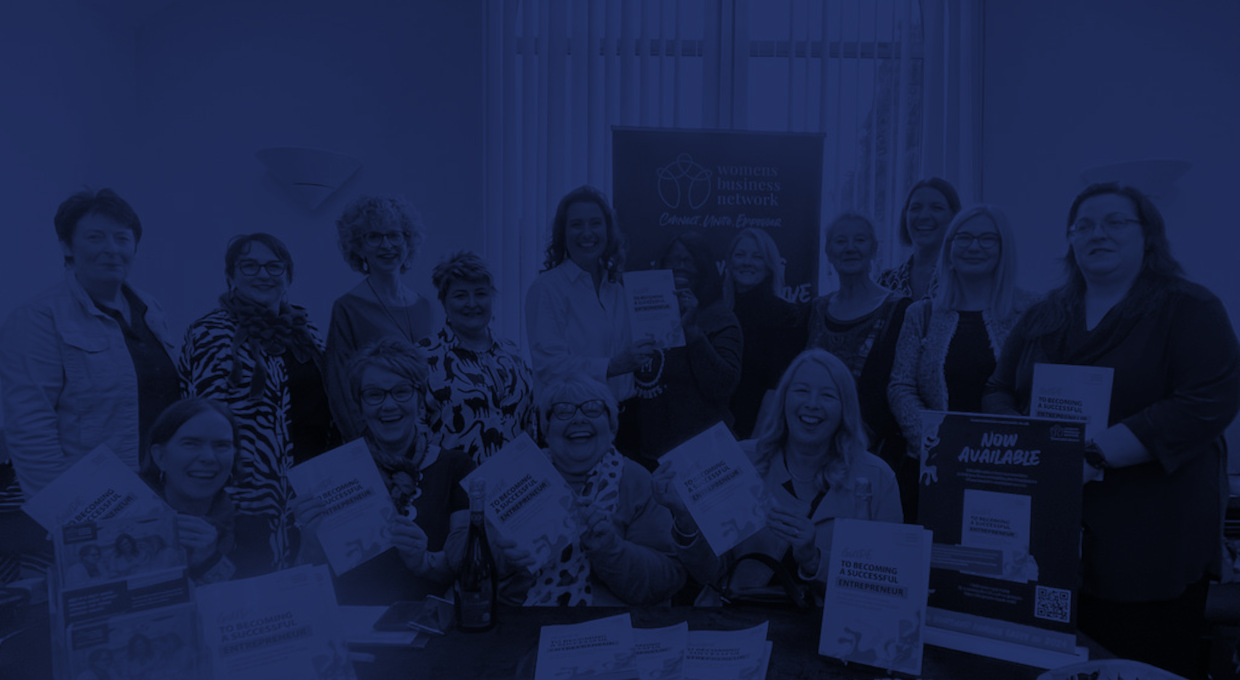We’ve all experienced the mind monkeys that tell us we will never be good enough, we’re not worthy, and we lack experience, or have no value. These negative thoughts are not only dangerous for our mental health, but they can also cause an issue when running a business.
In an interview with the Telegraph, author of Ditching Impostor Syndrome, Clare Josa said that impostor syndrome is the single biggest block to success in business today.
She went on to say “It affects a company’s bottom line because impostor syndrome means that people play small, they don’t take risks and won’t put forward their ideas.”

Starting a business is a huge undertaking. You are no longer a name and number on the payroll of a faceless corporation. Everything falls on your shoulders when you become a business owner and entrepreneur. The highs and lows of starting a business, ongoing sales and marketing, accounting, customer satisfaction, and a host of other elements are now your responsibility. You are personally accountable for it all – the successes and the failures.
Learning to run a business isn’t something you can do overnight. It takes time and patience, but if we allow impostor syndrome to creep into our mindset, it can have a negative impact on what we hope to achieve. Ultimately, it can be the stumbling block that forces us to remain stuck or close the doors on our business dream.
What is impostor syndrome?
Impostor syndrome was recognised by two psychologists, Suzanne Imes and Pauline Clance in 1978. In their findings, they initially assumed that only women suffered from this debilitating obstacle due to a lack of testosterone, which is the confidence hormone. It’s now been proven that men are equally susceptible to impostor syndrome too.
It’s interesting to note that while men push through any anxiety caused by impostor syndrome, we ladies allow any self-doubt to overwhelm us.
Impostor syndrome isn’t something you can inherit or catch from someone else. It’s an internal experience where we believe we are not as competent as those around us.
Have you ever suffered from any of these issues?
- Self-doubt
- Self-sabotage
- Overachieving
- Fear of failure
- Disappointment in yourself if you don’t meet a goal
- Assigning your success to an external force

It can become a vicious cycle where you begin to believe that your business success is pure luck, because of the work of others, or can be pinpointed to one single action. Even when we achieve something incredible like winning an award, securing a big client, or taking on staff, our impostor syndrome continues to cause us to doubt ourselves.
70% of people will experience at least one moment of impostor syndrome during their lives.
If you find yourself feeling sensitive to constructive feedback, you beat yourself up for every minuscule mistake, or you believe that you’ll ‘get found out’ soon and labelled a fraud. You are most likely experiencing impostor syndrome.
One of the most common signs that you are dealing with this issue is procrastination. In itself, procrastination isn’t a serious problem. We all have moments where we lack the motivation to finish a task. However, if we allowed our mind monkeys to overwhelm us, then procrastination can have a significant impact on your business.
What is procrastination?
How many times have you left a project or task thinking you have more time in your schedule to complete it, and then realised it was due the next day. Or how about those moments when you told yourself a project wouldn’t take very long, and you became detached from the urgency of it.
A lack of inspiration or losing your motivational mojo can be significant factors in procrastination. Waiting for when you are in the right frame of mind to complete your to-do list is a dangerous way to work, as that ‘right time’ may never arrive.
Impostor syndrome and procrastination fall hand-in-hand. One inevitably leads to the other. If you start to doubt your ability to finish a project, then you are more likely to do anything but work on that task. You’ll begin to use phrases like ‘I haven’t quite finished it yet.’

Adopting these tactics is how we become stuck in our business. The clear goals we set ourselves before we launched are moving further and further away. Our procrastination begins to affect our bottom line. Without sufficient funds, we have to make cut-backs, and we may start to take on work that is not in line with our core values to make ends meet.
Procrastination isn’t always linked to impostor syndrome, however. Do you recognise any of these from your working day?
- You don’t know how to do something (lack of knowledge)
- You don’t want to do something (lack of motivation)
- You don’t know what needs to be done (lack of direction)
- You don’t know how to get started (lack of inspiration)
- You leave one task to work on another (lack of strategy)
How do you free yourself from impostor syndrome and procrastination?
The most crucial factor is to recognise that your performance does not determine your value or worth.
Let’s think about how a coach works with their clients – they test, they fail, they get better. It’s a cycle that allows a client to evolve in a safe environment. Failure is good. It’s how we learn. Impostor syndrome doesn’t make room for failure as it focuses all its energy on our self-sabotaging habits.
If you feel stuck in your business, then you are more likely to begin to actively process those negative thoughts, leading to periods of procrastination.
Break the cycle.
At the Women’s Business Network, we have worked hard to create a safe space for all women in business. When suffering from doubts or fears over your business, it can be the most comfortable option to internalise your thoughts. However, by doing this, you are setting yourself up for a period of procrastination.
Our network gives you the time, space, and support to talk through any uncertainties, fears, or anxiety that you are experiencing.
Through our networking sessions, private Facebook group, guest speakers and blogs, we can help you to fill the gaps in your knowledge. Our network help you feel motivated and inspired and find direction by learning from the other ladies in the group. You’ll also discover how to put workable processes and strategies in place to help combat any procrastination.
Connecting with like-minded women in a supportive environment is the perfect way to work through any issues you have around impostor syndrome too. You’ll find that everyone has an experience to share, and advice or tips to give that will help you on your business journey and professional development.

Find out more about the support, online meetings, and guest speakers we have coming up at the Women’s Business Network via our website: www.womensbusinessneworking.co.uk
Alternatively, get in touch to discover how membership to the Women’s Business Network will benefit you and your business and take you from surviving to thriving.
Book a clarity call to see how we can help you further.


